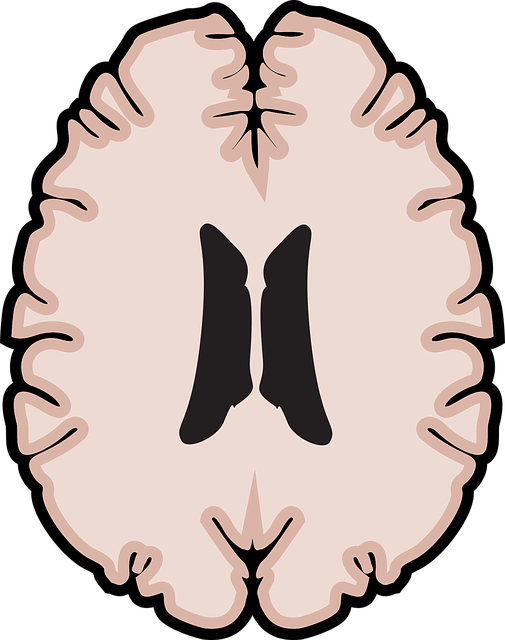Chronic stress, exacerbated by modern life demands and conditions like Wheat Ridge Functional Neurological Disorder (WNFD), causes physical and mental health issues. However, mindfulness, exercise, cognitive behavioral therapy (CBT) and lifestyle changes effectively manage stress and promote emotional well-being. Wheat Ridge Functional Neurological Disorder Therapy offers a holistic approach, integrating these techniques to address root causes and reduce stigma for individuals with WNFD. Mindfulness meditation, social skills training, and support systems are key to cultivating resilience and easing mental health challenges.
- Understanding Stress and its Impact
- Wheat Ridge Functional Neurological Disorder Therapy: A Comprehensive Approach
- Lifestyle Changes for Effective Stress Reduction
- Mindfulness Techniques to Calm the Mind
- The Role of Support Systems in Managing Stress
Understanding Stress and its Impact

Stress is a natural response to demanding situations, but when it becomes chronic, it can significantly impact our overall health and emotional well-being. It’s essential to recognize that stress isn’t just about feeling anxious or overwhelmed; it affects the body and mind in profound ways. The brain’s fight-or-flight response triggers the release of hormones like cortisol, which, over time, can lead to various physical and mental health issues. This is especially true for individuals with conditions like Wheat Ridge Functional Neurological Disorder (WNFD), where managing stress becomes a crucial part of their therapy.
Chronic stress can manifest in many forms, from difficulty concentrating and irritability to insomnia and even physical symptoms like headaches or muscle tension. It’s a growing concern in today’s fast-paced world, where individuals often face relentless demands at work, school, or home. Fortunately, there are effective Emotional Well-being Promotion Techniques that can help manage stress. These techniques include mindfulness practices, regular exercise, and cognitive behavioral therapy (CBT), which have been proven to improve symptoms of stress and even boost self-esteem. By adopting these strategies, individuals can better navigate stressful situations and promote a healthier balance in their lives.
Wheat Ridge Functional Neurological Disorder Therapy: A Comprehensive Approach

Wheat Ridge Functional Neurological Disorder Therapy offers a comprehensive approach to stress reduction and mental well-being. This holistic treatment focuses on addressing the root causes of neurological issues, going beyond symptom management. By integrating various therapeutic techniques, such as mindfulness meditation and cognitive behavioral therapy, individuals can achieve lasting results in managing conditions like depression prevention and reducing the impact of past traumas.
The unique aspect of Wheat Ridge Functional Neurological Disorder Therapy lies in its commitment to mental illness stigma reduction efforts. Through a supportive environment and personalized treatment plans, clients are empowered to navigate their challenges effectively. This comprehensive approach not only helps individuals regain control over their lives but also fosters resilience, allowing them to thrive despite facing various mental health hurdles.
Lifestyle Changes for Effective Stress Reduction

Making lifestyle changes is a powerful way to reduce stress and improve overall well-being. This includes adopting healthy habits such as regular exercise, eating nutritious meals, and prioritizing quality sleep. At Wheat Ridge Functional Neurological Disorder Therapy, we emphasize that emotional regulation plays a crucial role in managing stress. By incorporating practices like mindfulness meditation into daily routines, individuals can effectively reduce stress levels and enhance their mental resilience.
Stress reduction methods vary from person to person, but consistent effort in these areas is key. Incorporating activities that bring joy, spending time in nature, practicing deep breathing exercises, and seeking social connections are all valuable strategies. Additionally, learning to identify and change negative thought patterns can significantly impact one’s ability to cope with stressful situations. These holistic approaches, combined with professional guidance from specialists like those at Wheat Ridge Functional Neurological Disorder Therapy, offer comprehensive solutions for achieving lasting stress relief.
Mindfulness Techniques to Calm the Mind

In today’s fast-paced world, stress has become an all too common companion. For individuals dealing with conditions like Wheat Ridge Functional Neurological Disorder, managing this added layer of mental strain can be particularly challenging. However, mindfulness techniques offer a powerful tool to calm the mind and restore balance. By focusing on the present moment, these practices help individuals detach from anxious thoughts and reduce feelings of overwhelm.
One effective method is mindfulness meditation, which encourages non-judgmental awareness of thoughts, emotions, and bodily sensations. This simple yet profound practice can be incorporated into daily routines, enabling better stress management. Moreover, Social Skills Training techniques paired with mindfulness have been found to enhance mental wellness, offering a holistic approach that addresses both the symptoms of neurological disorders and any accompanying social anxieties. Through dedicated practice, individuals can cultivate resilience and reduce the impact of stress on their overall mental health, contributing to successful stigma reduction efforts in the realm of mental illness.
The Role of Support Systems in Managing Stress

Having strong support systems in place can significantly contribute to effective stress management. Whether it’s friends, family, or professional networks like Wheat Ridge Functional Neurological Disorder Therapy, these connections offer a safe space to express emotions and seek guidance when feeling overwhelmed. Active communication strategies within these systems foster understanding and allow for the sharing of coping mechanisms, reinforcing positive self-care practices.
Additionally, support from others can help reframe perspectives on stressors, offering new solutions or simply providing a comforting presence during challenging times. This collective approach to managing stress not only lightens individual burdens but also strengthens relationships, creating a resilient network that benefits everyone involved, even helping in the prevention of conditions like depression.
Stress is a universal experience, but navigating it effectively is key to our overall well-being. By understanding its impact and exploring diverse reduction methods, individuals can thrive in a world filled with challenges. Integrating practices like Wheat Ridge Functional Neurological Disorder Therapy, lifestyle changes, mindfulness, and supportive connections allows for holistic stress management. Embracing these strategies empowers folks to transform their lives, cultivating resilience and inner peace amidst life’s ups and downs.









